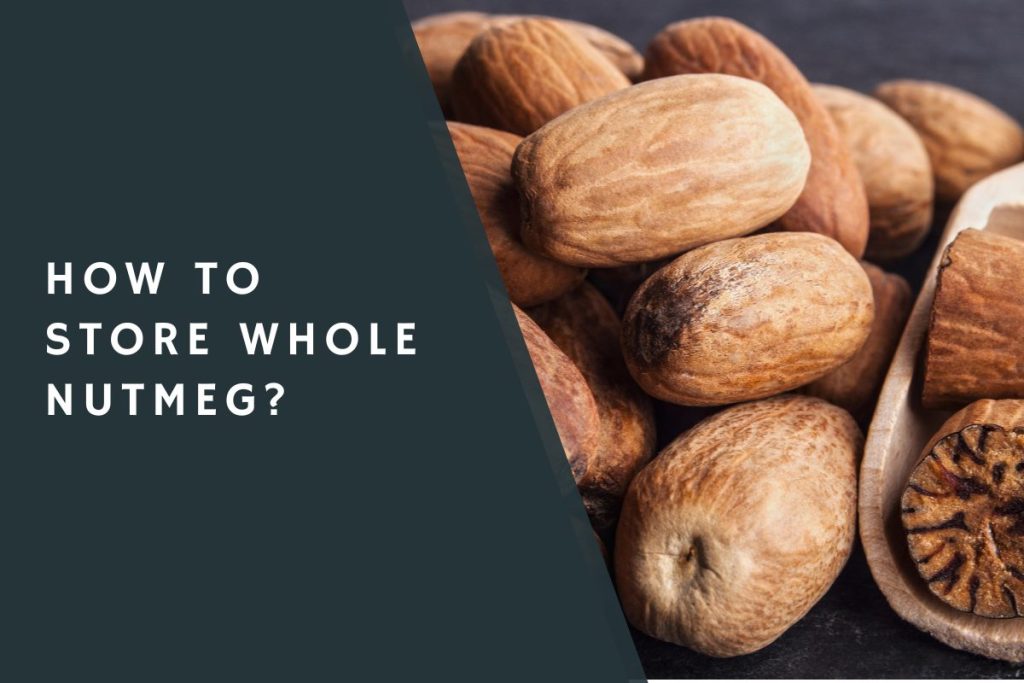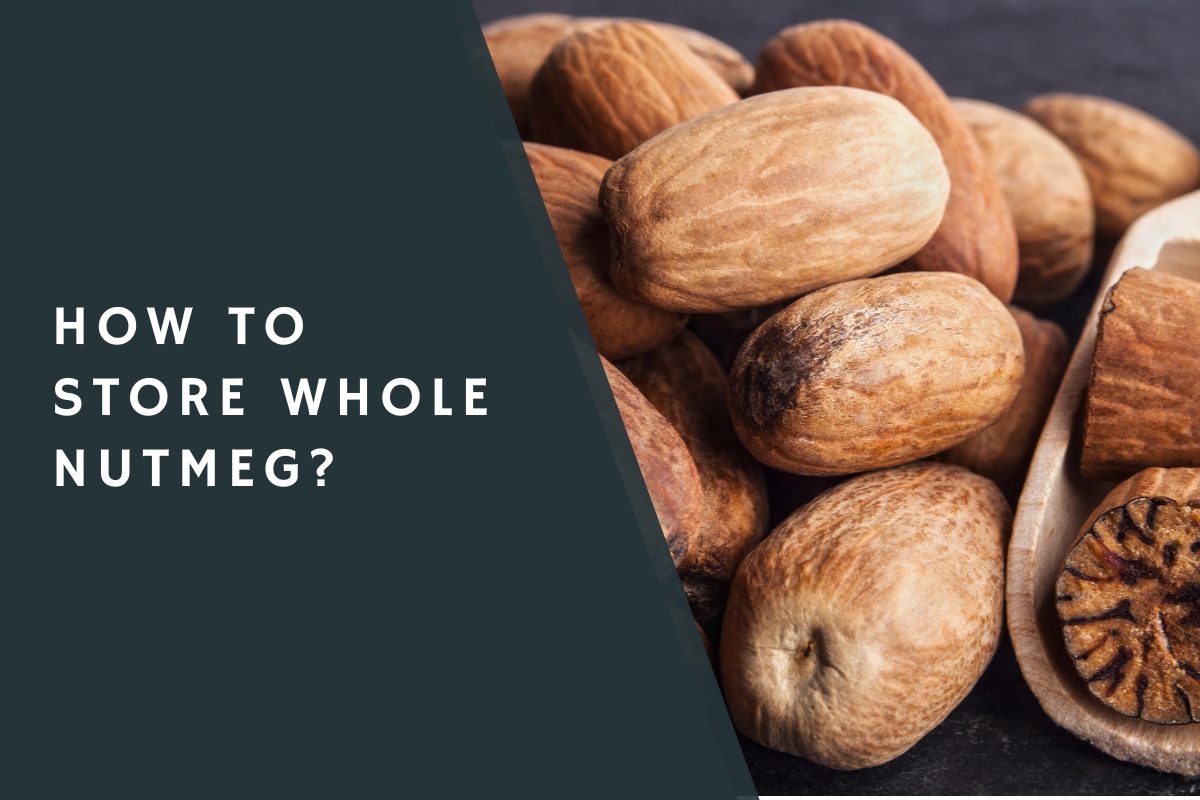Nutmeg is a versatile spice that is commonly used in sweet and savory dishes all around the world. It has a warm, woody flavor and is often used in small quantities to add depth and complexity to a variety of dishes.
How to Store Whole Nutmeg?
To store the whole nutmeg, you should place the whole nutmeg in an airtight container and store it in a cool, dark, and dry place. Make sure to keep the container tightly sealed to preserve the nutmeg and its flavor. Additionally, it is best to use the nutmeg within a few months of purchasing it in order to get the best flavor.
In this article, we will discuss how to properly store the whole nutmeg in order to retain its flavor and potency for as long as possible.

See Also: How to Make Nutmeg Drink?
How to Store Whole Nutmeg? – Method
There are different useful ways to store nutmeg for the long term. Here are some effective methods:
1. Choose the Right Container
The first step in storing the whole nutmeg is to choose the right container. It is important to select a container that is airtight and will keep out moisture, as both of these factors can cause the nutmeg to lose its flavor and potency.
Glass jars with tight-fitting lids are a good choice, as are plastic containers with sealable lids. Avoid using metal containers, as the metal can interact with the nutmeg and cause it to lose its flavor.
2. Store in a Cool, Dry Place
Once you have chosen the right container, it is important to store the nutmeg in a cool, dry place. Nutmeg is sensitive to heat and moisture, so it is best to store it in a pantry or cupboard that is not exposed to direct sunlight or heat sources.
Avoid storing the nutmeg near the stove or in a damp basement, as these environments can cause the nutmeg to lose its flavor and potency more quickly.
3. Grind as Needed
While the whole nutmeg has a longer shelf life than ground nutmeg, it is still best to grind the nutmeg as needed in order to retain its maximum flavor and potency.
If you do need to grind the nutmeg in advance, be sure to store it in an airtight container and use it within a few days to ensure that it is still fresh.
4. Avoid Contamination
It is important to keep the nutmeg clean and free from contamination in order to maintain its freshness and flavor. Avoid storing the nutmeg near strong-smelling spices or foods, as the nutmeg can absorb these odors and affect its flavor.
Additionally, be sure to use clean utensils when handling the nutmeg and keep the container sealed when not in use to prevent contamination.
5. Know When to Replace
Finally, it is important to know when it is time to replace the nutmeg. While the whole nutmeg has a longer shelf life than ground nutmeg, it will eventually lose its flavor and potency over time.
If the nutmeg does not have a strong, aromatic smell or does not have much flavor when tasted, it is time to replace it with a fresh batch.
How Long Does Fresh Whole Nutmeg Last?
Whole nutmeg can last for several years if stored properly. However, it is important to note that the spice will gradually lose its flavor and potency over time, so it is best to use it within a few years for the best taste and aroma.
To extend the shelf life of the whole nutmeg, it is important to store it in an airtight container in a cool, dry place, away from heat and moisture. Grinding the nutmeg as needed can also help to preserve its freshness, as ground nutmeg has a shorter shelf life than the whole nutmeg.
If the nutmeg does not have a strong, aromatic smell or does not have much flavor when tasted, it is time to replace it with a fresh batch.
Conclusion
In conclusion, storing the whole nutmeg properly is essential in order to retain its flavor and potency.
Be sure to choose the right container, store the nutmeg in a cool, dry place, grind as needed, avoid contamination, and know when to replace the nutmeg in order to get the most out of this versatile spice.
By following these simple guidelines, you can ensure that your whole nutmeg stays fresh and flavorful for as long as possible.
Read Also: Can You Substitute Nutmeg for Cloves?

